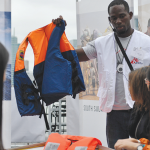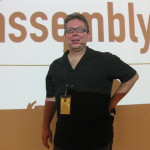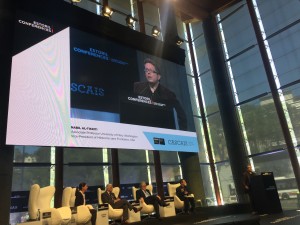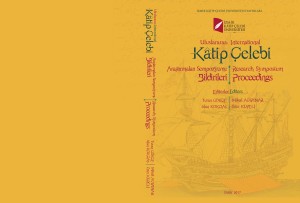New York City’s LaGuardia Community College hosted Associate Professor Nabil Al-Tikriti at a Nov. 2 career planning event titled “Between the World and Me.” Al-Tikriti, former vice president of Medecins Sans Frontieres (MSF)/Doctors Without Borders USA, spoke to LaGuardia student and faculty audiences twice in the day, joining panels that also featured Rashida Bumbray Shabazz, a curator and choreographer and the senior program manager at Open Society Foundations for the Arts Exchange, and Prof. Mark Kovic, associate program director for the occupational therapy doctorate program at Midwestern University and a practitioner with extensive service projects in Central America.
During the morning, the three panelists spoke about how their identities and intellectual trajectories shaped their careers and resulted in impactful ethical engagement in global affairs. This session aimed to connect the panelists’ work to current events, and highlight how the relationship between the global citizen and ethical action can help guide LaGuardia students in their personal lives and career paths.
After the morning panel, Dr. Al-Tikriti spoke about the importance of a humanities education for his humanitarian career in front of Prof. Ece Aykol’s comparative literature class.
In the afternoon panel, the same three participants moved from the theoretical to the more practical aspects of careers that place global engagement and experience at the center. Planned in conjunction with LaGuardia’s Office of Student Affairs and Center for Career and Professional Development, the two panels provided students insight and advice on course selection, career planning and ethical professional practices.



